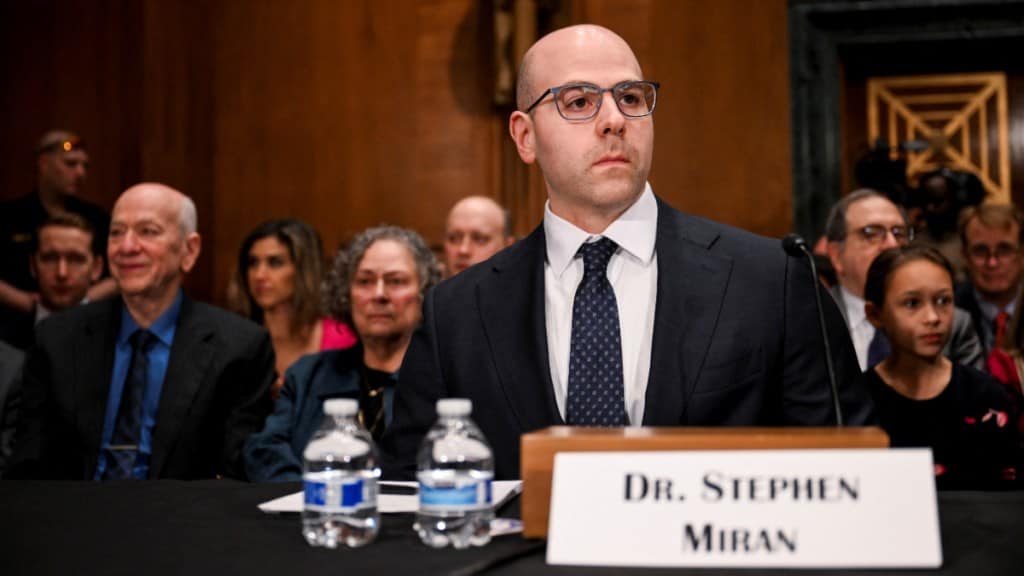Stephen Miran, one of President Donald Trump’s closest economic advisers, has been confirmed to the Federal Reserve’s Board of Governors after a very close Senate vote. The chamber voted 48–47 in favour of Miran, with Republican Senator Lisa Murkowski of Alaska breaking ranks to oppose the nomination.
Miran’s dual role
Miran will complete the term of former Fed Governor Adriana Kugler, which runs until January 2026. He has confirmed that he will not step down from his White House post but will instead take unpaid leave while serving as a Fed governor.
Miran’s appointment marks an historic first for the 111-year-old central bank – a sitting Fed governor will simultaneously remain an employee of the president. Traditionally, the Federal Reserve has maintained strict independence from the White House.
In his confirmation hearing, Miran insisted he had obtained legal clearance for this arrangement and pledged to act independently. “The Fed’s independence is critical to the well-functioning of the economy and financial markets,” he told senators.
The confirmation comes as the Fed begins a two-day policy meeting under mounting political and economic strain. Trump’s tariff-heavy trade policy is pushing up consumer prices while weakening the labour market, leaving the Fed with little room to balance its dual mandate of stable prices and maximum employment.
Meanwhile, the administration has waged an unusually aggressive campaign against the central bank, urging steep interest rate cuts and publicly berating Fed Chair Jerome Powell. Most controversially, Trump attempted to fire Governor Lisa Cook – the first such move against a sitting Fed policymaker – though a federal appeals court on Monday temporarily blocked that effort.
What Democrats said?
Democrats voiced unease about Miran’s close ties to Trump, questioning whether he could genuinely separate his White House role from his Fed responsibilities. Several pointed to a paper Miran co-authored for the Manhattan Institute last year, in which he criticised the revolving door between the Fed and government.
Miran rejected claims of hypocrisy, arguing that his proposals were meant to improve transparency and accountability. “I’m very independently minded, as shown by my willingness to stray from consensus and hold out-of-consensus views,” he told lawmakers.
Meanwhile, with Miran now seated on the board, Trump has succeeded in moving one step closer to exerting greater sway over America’s monetary policy.

